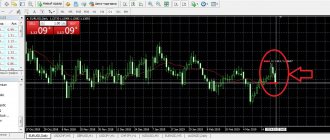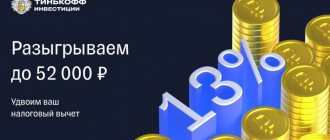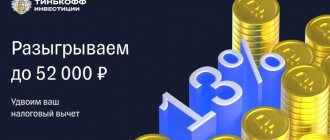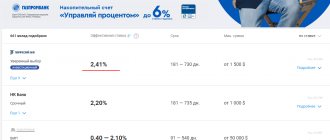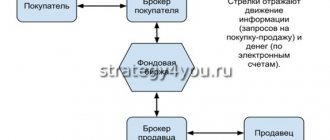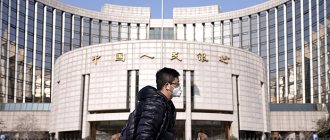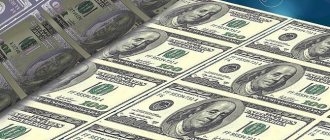Lazy Investor Blog > Need to Know
The US stock market, especially in the eyes of novice investors, has traditionally been considered reliable and transparent. It is generally accepted that price manipulation and corporate collusion are impossible or quickly suppressed. But is this really so? This article is a short excursion into the activities of a powerful government regulator - the SEC Securities Commission.
What is the SEC and what does it do?
The Securities Commission is a government agency that regulates and controls the securities markets and sets rules for all participants (professional and private investors, brokers, etc.).
In addition to defining the rules of the game, the Commission pays a lot of attention to investor protection. The results of operations can be assessed by the capitalization of the leading stock exchanges: the NYSE has $33 trillion (greater than China's GDP), the NASDAQ has $17.2 trillion.
Hurry up to take advantage of the doubling of the tax deduction until December 31, 2022.
Functions and powers of the Securities and Exchange Commission
Basic functions of the Securities Commission:
- Introducing the principles of fairness, orderliness and efficiency into the stock market.
- Monitoring compliance with fundamental regulations and laws.
- Informing and protecting security holders from manipulation and actions of fraudsters. The Commission regularly publishes special newsletters. Publicly available data on businesses and brokers is provided through EDGAR at sec.gov. There is an ombudsman who provides liaison between retail investors and the SEC. He receives information, questions, complaints, and helps solve problems. The ease of investors' access to relevant information is controlled.
- Development and application of norms and rules for stock market participants.
- Control over issuers, brokers, investment consultants and rating agencies. The Commission seeks to improve disclosure and control it as much as possible. Issuers are consulted free of charge regarding the reporting provided.
- Oversight of private securities, accounting and auditing regulatory organizations.
- Conducting conferences with current and former officials, experts from various areas of the private sector to discuss constantly changing economic conditions and risks.
- Holding regular open meetings accessible to the media and the public, unless confidential issues are discussed (forced fines, etc.).
- Promoting the formation of capital for companies (shares of startups are traded on American stock exchanges). The special project FinHub provides interaction with developers, innovators, and entrepreneurs in the field of crowdfunding. A separate site, Small Biz, is designed to support small businesses looking to raise private or government funding. The Securities Commission helps cryptocurrency projects conduct an IPO if the issuer is willing to undertake obligations to comply with basic laws.
- Educational program on the Commission's website (the economy needs careful and educated investors).
- Control of corporate takeovers.
The SEC cannot prohibit the issue or issue of an issuer's securities or guarantee their value, but can suspend trading in them if fraud or price manipulation is suspected.
Laws governing the activities of the US SEC
The Securities Commission operates in accordance with the laws:
- “On Securities” (1933);
- “On trading in securities” (1934);
- “On investment consultants” (1940, 1996);
- Sarbanes-Oxley (2002);
- "On the Trust Agreement" (1939);
- “On Wall Street Reform and Consumer Protection” (2010);
- “Regulations on Startups” (2012);
- "On Investment Companies" (1940);
- other regulations.
A Brief History of the Creation of the Securities and Exchange Commission
The SEC emerged during the American Great Depression. The unregulated securities market dropped by 90%. The consequences were catastrophic. F. Roosevelt, who came to power, proposed an anti-crisis program (“Roosevelt’s New Deal”). One of the stated goals is to streamline the securities market and establish control over participants.
In order to increase people's confidence in the stock market, several important laws were passed that are still in force. To put them into practice, the Securities Commission began operating in 1934, becoming the main instrument of investor confidence in the United States.
It was possible to ensure a stable attraction of investment into the US economy thanks to the absolute protection of investor rights by the federal agency.
At first the Commission was responsible for all markets. Since 1974, commodity exchanges and financial institutions involved in trading have been controlled by the CFTC, and the SEC now deals only with stock markets and all types of securities. Often a company can come under the control of two regulators at once.
Localization SEC
The Commission's headquarters address is 100F Street Northeast, Washington, District of Columbia, 20549. It has offices in 11 states.
Analog SEC in Russia
Since March 9, 1993, the Federal Securities Commission has been operating in the Russian Federation, duplicating the functionality of the SEC. On March 9, 2004, it was transformed into the Federal Service for Financial Markets. In September 2013, when the model for regulating financial markets was being updated, the department was abolished. Control functions were transferred to the mega-regulator - the Central Bank of the Russian Federation.
What is the difference between the work of both structures
Historically, the rank of the Securities Commission was higher than that of the Federal Securities Commission and the Federal Financial Markets Service, which have always been at a level below the ministries. In the Russian Federation, interaction between organizations and departments related to the financial market is insufficiently developed. In the Russian Federation, the main task of the regulator is supervision, control and punitive measures when identifying shortcomings.
The SEC's range of functions is broader: work is underway to facilitate issuers' access to private and public financing through public offerings of shares and bonds. Everyone wins.
Enterprises receive an influx of capital, paper holders receive dividends or interest income, and make money from rising quotes. The economy is developing, new jobs are being created, and living standards are improving. The American Securities Commission pays remuneration to those who help uncover fraud; this practice has not been introduced in Russia.
Functions and structure of the SEC
Any company (including Russian) whose shares are traded on US stock exchanges falls under the control of the commission. All violations of legislation in the field of securities trading and investor services, as well as refusal to provide financial information to regulatory authorities, may become the basis for an investigation by the SEC. The SEC pays particular attention to transactions that have signs of a corporate takeover. For example, if an investor acquires a package of 5% or more of a company’s shares, no matter at once or as a result of several transactions, this event will necessarily become the subject of close scrutiny by the SEC. Thus, raider takeovers of companies turn out to be practically impossible. The commission's interest may be aroused by client complaints about unfair brokerage services, suspicion of the use of insider information, price manipulation, etc.
I also recommend reading:
Corporate Information Disclosure Center as a Fundamental Analysis Tool
Corporate Information Disclosure Center - how it is useful for investors
Structurally, the SEC consists of five divisions, each of which has its own set of functions and powers. The divisions are led by inspectors appointed by the President of the United States and confirmed by the Senate. However, inspectors are independent in their work and are not accountable to any government agency. The activities of the divisions are served by 24 specialized divisions: offices, departments and offices. SEC regional branches are located in 11 US cities.
Despite the enormous influence and broad powers, the SEC does not control the entire economy of the country, but only that area of it that is in any way connected with the circulation of securities. If the problem concerns, for example, the futures market, another regulatory body comes into play - the CFTC (Commodity Futures Trading Committee). At the same time, it is possible that in investigations both organizations can act together, but taking into account the delimitation of their competencies.
Compound
The structure of the SEC is as follows:
- chairman;
- 5 Commissioners appointed by the President of the Commission (maximum 3 from one party to ensure impartiality, one of them changes every year);
- corporate finance department;
- Analytics department;
- Law Enforcement and Monitoring Department;
- investment management department;
- Sales Department;
- International Department;
- international legal department;
- 24 profile controls.
Scope of regulation
The SEC regulates the securities markets with all participants. The Commission regulates:
- shares of all categories;
- interest bearing bonds;
- derivatives;
- debentures;
- options;
- warrants;
- swaps;
- bills;
- tokens of cryptocurrency projects during ICO (futures for Bitcoin and Ethereum are handled by CME).
The Securities Commission controls all issuance instruments in which you can earn income by investing your own capital. Access to management or lack thereof and the country of residence of the investor do not matter.
Dividends
The SEC is required to monitor the procedure for calculating and regularity of payments of quarterly and annual dividends (part of the profits distributed among security holders) of reporting companies.
Any types of periodic payments
The Securities Commission monitors the correctness of the calculation and payment of interest income on bonds. Interest accrues daily, payments are made on a certain date.
Increase in the cost of the purchased instrument, exchange rate difference
When conducting an IPO on American exchanges, the Commission evaluates the value of the company. Market capitalization is used to determine the share price, which changes over time. Thanks to exchange rate differences, security holders receive income or record a loss.
Commission Rulemaking Process
The organization has the broadest powers in developing rules and monitoring the operation of the securities market. In addition, the Commission has the right to supplement and amend existing rules. It is stated that the legislative process takes place in several stages:
- Concept creation. It outlines topics of concern. Various solution approaches are identified. Questions are raised to determine public opinion. Public responses are taken into account if they are considered relevant.
- Proposal for new rules. After approval by the Commission, they are published for general discussion. As a rule, the discussion lasts 30–60 days.
- Acceptance of the rule. After reviewing public comments, the new rule is approved, becoming part of the regulations governing the industry. Many rules come into force immediately, but sometimes the Commission sets a delayed date or introduces amendments in stages.
To summarize, I want to draw attention to one more aspect. The Commission's structures not only control the huge monetary turnover of American markets ($50 billion per day), but also bring quite significant income to the treasury.
Thus, over 5 years, from 2013 to 2022, the Commission collected more than $10 billion in fines. At the same time, it can impose sanctions on a company or citizen of any country that in one way or another took part in US stock trading.
To avoid problems, you should not only strictly follow all the rules, but also understand the signals that the SEC gives. For example, during 2022, the Commission intensified actions against cryptocurrencies and called on people to beware of toxic offshore zones, which included Algeria, Ecuador, Myanmar, and Vanuatu.
Thank you for reading the text to the end, I hope it was interesting and useful. Subscribe to articles and share them on social networks. All the best!
Subjects of the US Exchange Commission
SEC controls:
- issuers;
- brokers (commission and directly on the floor);
- registered traders;
- institutional investors;
- exchanges (NASDAQ with high-tech companies, NYSE with large-cap global companies, AMEX with small-cap companies);
- over-the-counter markets;
- market makers;
- hedge funds;
- investment consultants;
- rating agencies;
- ETF funds;
- non-governmental regulatory organizations;
- operators (depositories, etc.);
- investors purchasing more than 5% of the issuer's shares.
Information provided to the SEC by companies
Public companies are subject to a number of requirements to disclose relevant information so that investors make objective decisions.
The work of the Securities Commission is based on the following principles:
- Issuers that publicly offer assets are required to tell the public the truth about financial and economic activities, issuing instruments and risks. Positive and negative information is exposed to publicity, helping to make an informed decision regarding securities (buy, sell, hold).
- Professional players speculating in securities are obliged to treat holders fairly and put their interests above all else.
Public companies provide the Commission with the following documents:
- registration statements for newly placed securities;
- annual and quarterly applications;
- proxies sent to shareholders prior to the annual meeting;
- annual reports;
- tender offers (purchase of a large number of company shares at a price above the market price);
- information on mergers and acquisitions;
- explaining decisions when making large investments.
Summary
- The Securities and Exchange Commission (SEC) is the regulatory agency of the US government responsible for regulating the securities markets and protecting investors.
- The Securities and Exchange Commission was established by the U.S. Securities Act of 1933 and the Securities Exchange Act of 1934, largely in response to the stock market crash of 1929 that led to the Great Depression.
- The SEC itself can file civil lawsuits against violators of the law, and also works with the Department of Justice in criminal cases.
And that's all about the Securities and Exchange Commission (SEC) today. I hope the article was useful to you. Share the article on social networks and instant messengers and bookmark the site. Good luck and see you again on the pages of the Tyulyagin !
- 1
Share
Market surveillance methods
Several methods are used:
- Analysis of periodic reporting of SEC-reported companies.
- Analysis of data provided by investors on a voluntary basis (about accounts, the work of brokers and traders, investment consultants).
- Close information cooperation with other financial regulators (FINRA, Congress, federal departments and agencies, state regulators, etc.) and exchanges, which are self-regulatory organizations. The SEC is a member of the Financial Stability Oversight Council (FSOC).
- Information exchange between the Securities Commission and law enforcement agencies (prosecutor's office, FBI, tax service, police).
- Interaction with foreign regulators. The closest cooperation has been established with the CSRC (PRC): they exchange not only information, but also experience.
Reasons for SEC Investigation
Inspections are periodically carried out on our own initiative and based on civil claims received by the Commission from individuals and legal entities. Typical violations:
- insider trading;
- theft of securities or customer funds;
- accounting fraud;
- incomplete or unreliable information about the company and issuing instruments;
- deficiencies in regularly provided reporting;
- sale of unregistered securities;
- interaction with counterparties from prohibited countries (Iran, Sudan, North Korea, Somalia) and Crimea;
- manipulations with the market price of exchange instruments.
There are two types of fines from the Securities Commission:
- civil (for harm caused to the state);
- payments for illegally obtained income (compensation for losses to victims).
Since 2012, awards have been given to those who help the SEC expose fraud. $387 million was paid to 70 individuals. Payments come from the Investor Protection Fund, which is financed by fines received. Confidentiality of payments is ensured. They pay 10–30% of the amount over $1 million.
Who is fined and for what?
The SEC continually records violations. In crisis years there are more of them. For example, in 2002, only 1 fine of $10 million was issued for fraud. And in 2014, more than 100 companies were subject to sanctions totaling $4 billion. In 2022, the Securities Commission opened 490 cases. Legal entities and individuals are subject to punishment.
Scandalous SEC inspections on suspicion of fraud were initiated against Goldman Sachs, JP Morgan, GSC Group. Goldman Sachs was hit with a record fine in Wall Street history – $500 million, which was not appealed.
The reason is misleading clients when issuing bonds. In 2015, the Russian broker Exante was suspected of fraud, but after investigations the Securities Commission dropped the charge.
Trading champion Larry Williams was twice audited by the SEC and had his accounts frozen during the investigation. Elon Musk was fined $20 million for a tweet announcing the buyout of all Tesla shares. Quotes doubled as a result of the news.
The commission figured out that Musk did not have the financial ability or even the intention to buy back the papers. Floyd Mayweather (world boxing champion) paid a fine of $614.7 thousand for hidden advertising of the ICO cryptocurrency project Central Tech: the SEC found out that the athlete received money for promotion.
The SEC conducted an investigation to identify those who ordered the terrorist attacks of September 11, 2001. We checked all those who opened large orders to sell airline securities on the eve of the disasters (at first the quotes skyrocketed, and then sank by 40%). However, the results obtained by the Commission were not made public.
Examples from SEC activities
The scale of the SEC’s work can be evidenced by the fact that during the period from September 2022 to September 2022, the total amount of fines issued for various financial violations amounted to almost $4 billion, which is comparable to the GDP of a small country. A typical example is the participation of famous sports or media figures in advertising dubious financial products. This happened, for example, with boxer Floyd Mayweather, who advised investing in Centra tokens from the startup Centra Tech, which promised to create a service for cashing out cryptocurrencies. Mayweather was fined more than $600 thousand for false advertising.
This is especially instructive against the backdrop of the typical practice in Russia, when show business stars openly advertise financial pyramids and forex kitchens, talking about their imaginary incomes. According to SEC rules, a participant in such advertising may be forced to take a difficult exam on knowledge of the basics of trading, including the intricacies of technical and fundamental analysis. In case of failure (and it is practically guaranteed in this situation), a large fine is inevitable.
One of the most resonant scandals in the US stock market in recent times is associated with Elon Musk’s announcement of his intention to buy all the shares of Tesla, which he himself headed. It is not surprising that such a serious statement created a commotion on the stock exchanges. However, an SEC investigation showed that Musk did not have the necessary funds at all, let alone any real intention to complete the transaction. As a result, at the request of the SEC, Musk not only paid a fine of $20 million, but was also forced to temporarily leave the company’s board of directors.
I also recommend reading:
Currency control when investing abroad
Currency control: how money can cross the border correctly
And yet there is an episode in the history of the SEC that seriously damaged the authority of this structure. We are talking about the famous attacks on the Twin Towers in New York on September 11, 2001, as well as the mysterious events related to them on the American stock exchanges. On the eve of the terrorist attacks, from September 6 to September 10, there was an abnormal demand for put options on shares of United Airlines (ratio of put and call options 12:1) and American Airlines (ratio of 6:1). Traders seemed to know in advance that the shares would fall significantly in price. This is exactly what happened after the terrorist attacks – the drop was approximately 40%.
Even more interesting is that the volume of purchases of call options on shares of Raytheon, one of the main manufacturers of weapons for the US Army, jumped 6 times (recall that soon after the terrorist attacks large military operations against the Al-Qaeda group began). Thus, speculators seemed to know in advance which securities would fall and which would rise in price.
According to the most conservative estimates, the net income of speculators as a result of the stock market crash that followed the terrorist attacks amounted to more than $10 billion. There have been reports that the SEC is in close contact with the FBI in the investigation. However, no details about the results of this investigation were made public, except for a little-noticed news report published only in June 2004. It said that the commission examined 9.5 million transactions and came to the conclusion that they were not the nature of organized speculation. All this became the basis for various hypotheses about a gigantic government conspiracy, in which terrorists were assigned the role of puppets, and the SEC was forced to hide the results of the investigation.
Registration procedure with the US Exchange Commission
The companies themselves do not register with the SEC. But it is necessary to register a number of transactions in accordance with the Securities Law:
- initial public offering of securities with determination of their class;
- emission;
- transactions (large placements and sales).
For public posting, registration is required; for private posting, you can do without it.
The Exchange Act obliges foreign private issuers to register with the Securities Commission if they wish to list on NASDAQ, NYSE, or Amex. But only on condition that the assets exceed $10 million, and the number of holders is from 500 (at least 300 are US residents).
Private foreign issuers undergoing initial registration are permitted to provide information to the SEC on a confidential basis. However, before the Road Show (the practical preparation of a company for an IPO) and/or the sale of securities, it must become publicly available.
For initial registration through the Securities Commission, you must prepare:
- prospectus with all information;
- a brief description of the most important contracts concluded;
- business plan;
- data on the amount and forms of payments to management;
- reporting according to GAAP standards for independent audit.
Exemption of transactions from registration with the SEC
Unregistered transactions are simple and less time consuming. Foreign issuers avoid mandatory registration with the SEC. In this case, the company is not required to bring its reporting to GAAP standards with subsequent audit.
The Securities Commission exempts the following transactions from registration:
- Offshore transactions without public disclosure of information. This is often the first step before entering American markets. Offshore territories include Andorra, Belize, Bermuda, Vanuatu, Cyprus, Malta, Panama, etc.
- Placement of securities by accredited investors (banks, investment and insurance companies, corporations, large asset managers, etc., individuals with a capital of $1 million or more or an income of more than $200 thousand per year).
- Resale of the securities referred to in paragraph 2 to other institutional investors (for transaction amounts exceeding $10 million), who are independently, without the assistance of the Commission, able to make an objective decision on the investment of capital. Brokers and dealers in this case must operate with amounts in excess of $10 million. Companies are required to provide only brief information about financial and economic activities and basic financial statements (balance sheet, profit and loss statement and retained earnings of previous years for the previous 2 years). Reports submitted to the SEC are audited; conversion to GAAP standards is not necessary.
Annual reporting of registered companies to the SEC
After completing the registration procedure, the issuer becomes required to report to the SEC. The following are provided to the Commission:
- Form20F report (detailed non-financial and financial data);
- Form6K report (information disclosed by the issuer in accordance with the laws of the home country, exchange listing requirements and provided to security holders).
Top Russian companies registered with the SEC
The following companies were registered with the Securities Commission to enter NASDAQ:
- QIWI Plc. in 2013;
- Yandex in 2011;
- CTC Media, Inc. in 2006.
The following companies were listed on the NYSE after registration with the SEC:
- Mechel PJSC (2004 and 2010);
- MTS PJSC (2000);
- PJSC Rostelecom (1998);
- PJSC Tatneft (1996);
- JSC "WIMM-BILL-DANN" (2002).
The last three companies left US exchanges.
SEC Approval of Prospectus
The issue of securities is a complex process consisting of several stages. In particular, the issuer must enter into an agreement with an underwriter (this can be an investment bank or an insurance company licensed to carry out the relevant activities). Underwriting services usually include guarantees for the purchase of an issue before putting it up for exchange trading, working with potential investors and preparing the necessary documentation, including a prospectus. It must contain information about the underwriting agreement, list the main owners of the company and their shares in the authorized capital, the directions of the company’s activities, its financial results, as well as the purposes for which the funds raised through the issue are planned to be spent. The prospectus is then submitted to the SEC for approval. If the commission's approval is received on the first go, it will become a strong argument contributing to the future success of the issue.
Since stock market instruments also include shares of exchange-traded funds (ETFs), their issue must also undergo a preliminary examination by the SEC. Just at the time of the publication of the article, an intriguing situation is developing around competing projects for creating ETFs based on Bitcoin. These projects are systematically submitted to the SEC by various financial structures (in particular, VanEck and Winklevoss Bitcoin Trust), however, so far none of them have been approved. Hester Pierce, SEC commissioner, has repeatedly expressed a dissenting opinion that differs from the official position of the agency. According to her, the creation of an ETF on Bitcoin would attract a significant number of investors to the market. But it is precisely concern for them, in the absence of a reliable mechanism for protecting against the actions of fraudsters, that dictates the SEC’s cautious position.
